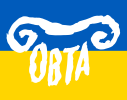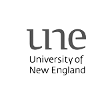Autism and Mythology
As part of the European Research Council-funded project Our Mythical Childhood Susan Deacy is developing a programme for autistic children via figures from classical mythology.

The programme focuses in particular on a series of activities around an episode involving Hercules, who has particular resonance for autistic children. The focal point of the activities is the hero’s choice between two contrasting paths in life, one represented by a woman/goddess named Virtue (or Hard Work), the other by one named Pleasure (see below drawing by Steve Simons, based on Virtue and Vice relief from the chimney panel in the Adam Room, Grove House at the University of Roehampton, London).


The activities seek to empower autistic children, including by stimulating new opportunities for cultural participation. The project is utilising the potential of Hercules as a ‘gateway’ towards understanding, identifying, contextualising, and conceptualising oneself and others. The activities are seeking to respond to the social pressures and anxieties often faced by autistic children around making choices, and around recognising, managing and communicating emotions. The development of the activities is being disseminated via a series of lectures, workshops and public engagement events, and through the blog Mythology and Autism.

The progress of the project is being informed though consultations with autism and child development specialists and with storytellers and with autistic children: the first of a series of pilot studies was conducted at a London primary school’s autism base with pupils aged 7–11. During the meetings and conferences of the Our Mythical Childhood team in Warsaw, there is also always a workshop in the Warsaw Café Życie Jest Fajne [Life Is Cool], managed by the staff on autism spectrum.

The project’s use of Hercules in identifying, managing, and communicating emotions is informing the programme ‘Heroic Hercules and his battle with complex emotions’, for autistic children in Israel, developed by Drs Lisa Maurice and Ayelet Peer in partnership with the Israeli autism society. In turn, the Choice of Hercules activities have been informed by the research of Drs Maurice and Peer and their collaborators. In May 2019, during the conference Our Mythical History: Children’s and Young Adults’ Culture in Response to the Heritage of Ancient Greece and Rome, Professor Deacy and Dr Maurice founded ACCLAIM (Autism Connecting with CLAssically Inspired Myth), an International Classics and Autism Network to promote global and cross-disciplinary studies into autism and Classics globally.
In December 2019 Prof. Deacy took part in the Second Ciceronian Congress in Warsaw – Cicero, Society, and the Idea of Artes Liberales, where she presented her research on the Hercules’ Choice as transmitted in De officiis.

On this Ciceronian event see also her blog post.
In 2023 Prof. Deacy published her book What Would Hercules Do? Lessons for Autistic Children Using Classical Myth as part of the series Our Mythical Childhood edited by Prof. Katarzyna Marciniak. The book presents the educational potential of classical myth for autistic children. It does this via a series of activities, all of which are focused around an episode involving Hercules, a mythological figure with particular resonance for autistic people. The specific focal point of the activities is the choice of Hercules between two diverging paths in life, represented by two women or goddesses: Hard Work and Pleasure.
Follow Our Mythical Website, Our Mythical Facebook, ACCLAIM page, and Susan’s blog for more updates!











